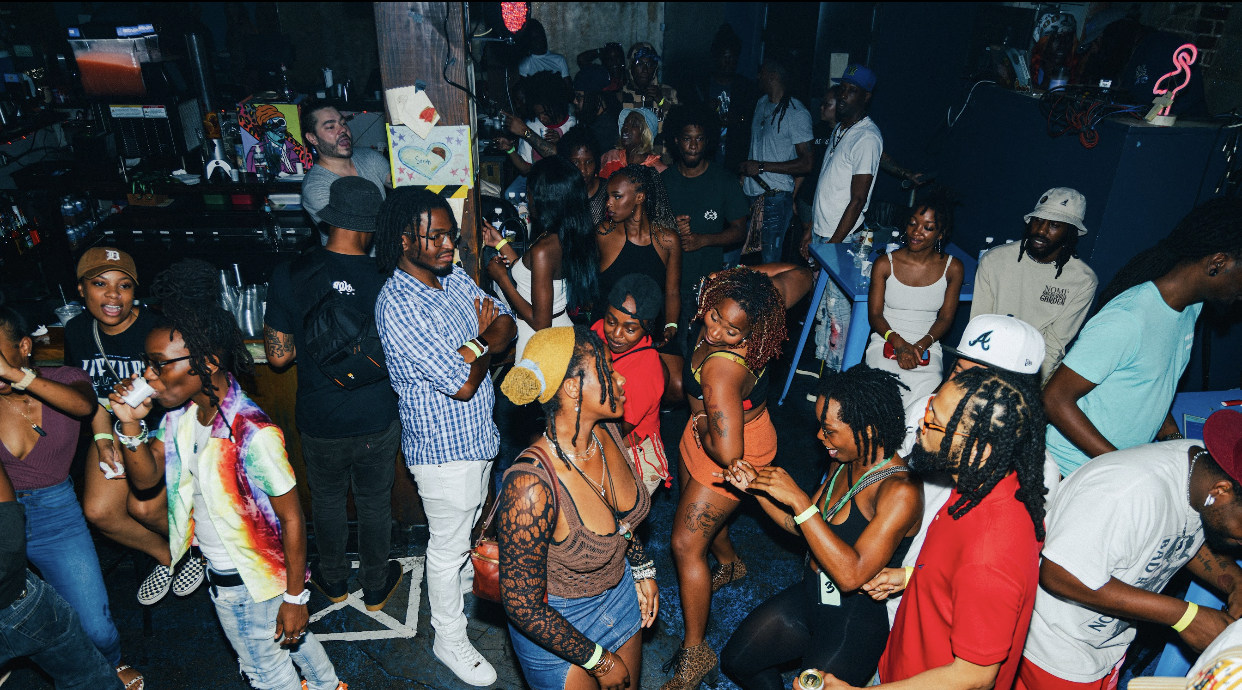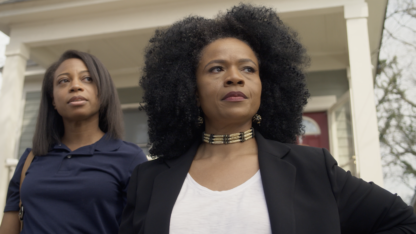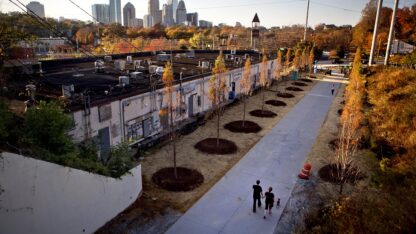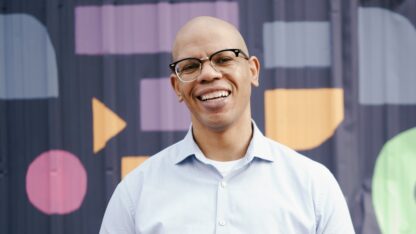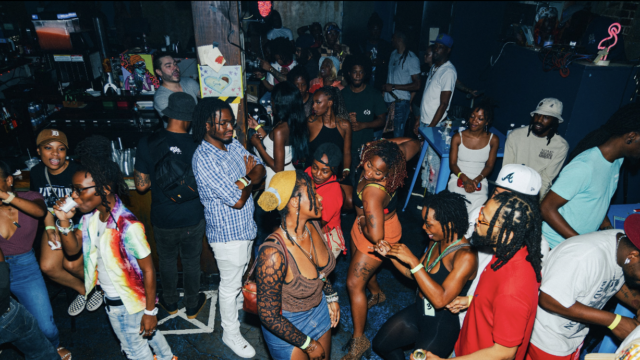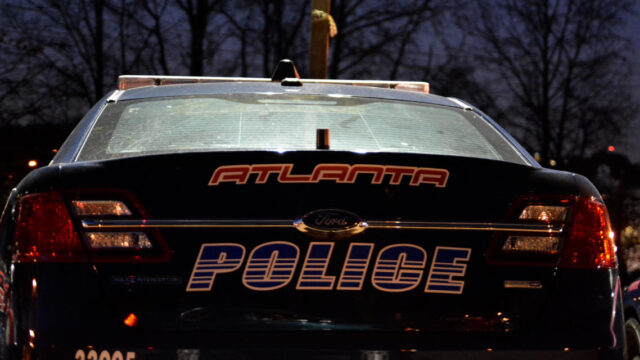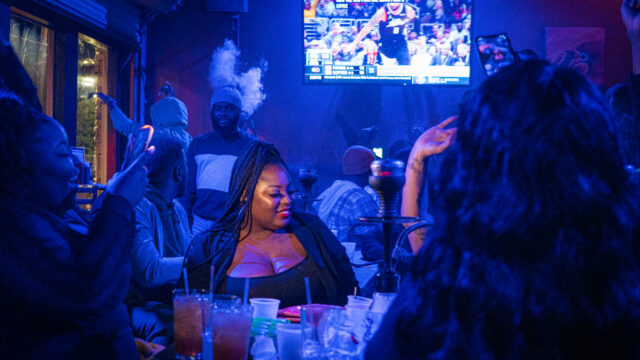This is Part 1 of the 3-part series: Nightlife in Atlanta.
Edgewood is the most rapped about street in Atlanta. The endless number of songs pay homage to one of Atlanta’s last remaining nightlife districts — one that embodies hip-hop culture in Atlanta.
It’s made up of over a dozen restaurants, bars and lounges that serve as a reminder of what Atlanta’s nightlife industry once was. But the party hasn’t stopped here — it remains a popular destination for Black residents and tourists alike. There’s no better place to get the full Atlanta experience, which is complete with dense traffic and a horrible parking situation.
“I don’t think there’s any street as dynamic as Edgewood Avenue in the city and I don’t just say that because I’m there. I say that because I’ve seen it change and evolve and then evolve again and change some more … It is the most Atlanta of Atlanta streets,” says Johnny Martinez, the owner of Joystick Gamebar and the Georgia Beer Garden.
The presence of Atlanta’s hip-hop culture is felt beyond the music that plays in the clubs. The street culture that’s emerged draws crowds long after last call inside the businesses. On peak nights, the sum of dense traffic and loud music creates street parties, concentrated around an Exxon gas station nicknamed “Club Sexxon.” (This gas station is currently blocked off because it’s at risk of losing its liquor license.)
And it’s unapologetically Black.
“We’re in the King Historic District. We all operate in the shadow of Dr. King,” he says. “If you have a problem with Black people being on Edgewood then you’re just in the wrong city.”
Martinez says residual racism has remained an obstacle for Edgewood. It’s a product of the gentrification occurring there. Investors, developers and landlords who are disconnected from the community are transforming the area. And new residents in this gentrification wave are causing a cultural shift away from what Black crowds have enjoyed at Edgewood for years. Atlanta is one of the fastest gentrifying cities in the U.S. Nightlife may only be collateral damage, but the impact is already being felt. Black nightlife and entertainment create culture here that’s given the city an identity. Gentrification is leaving less room for it to grow — and replacing it with something else.
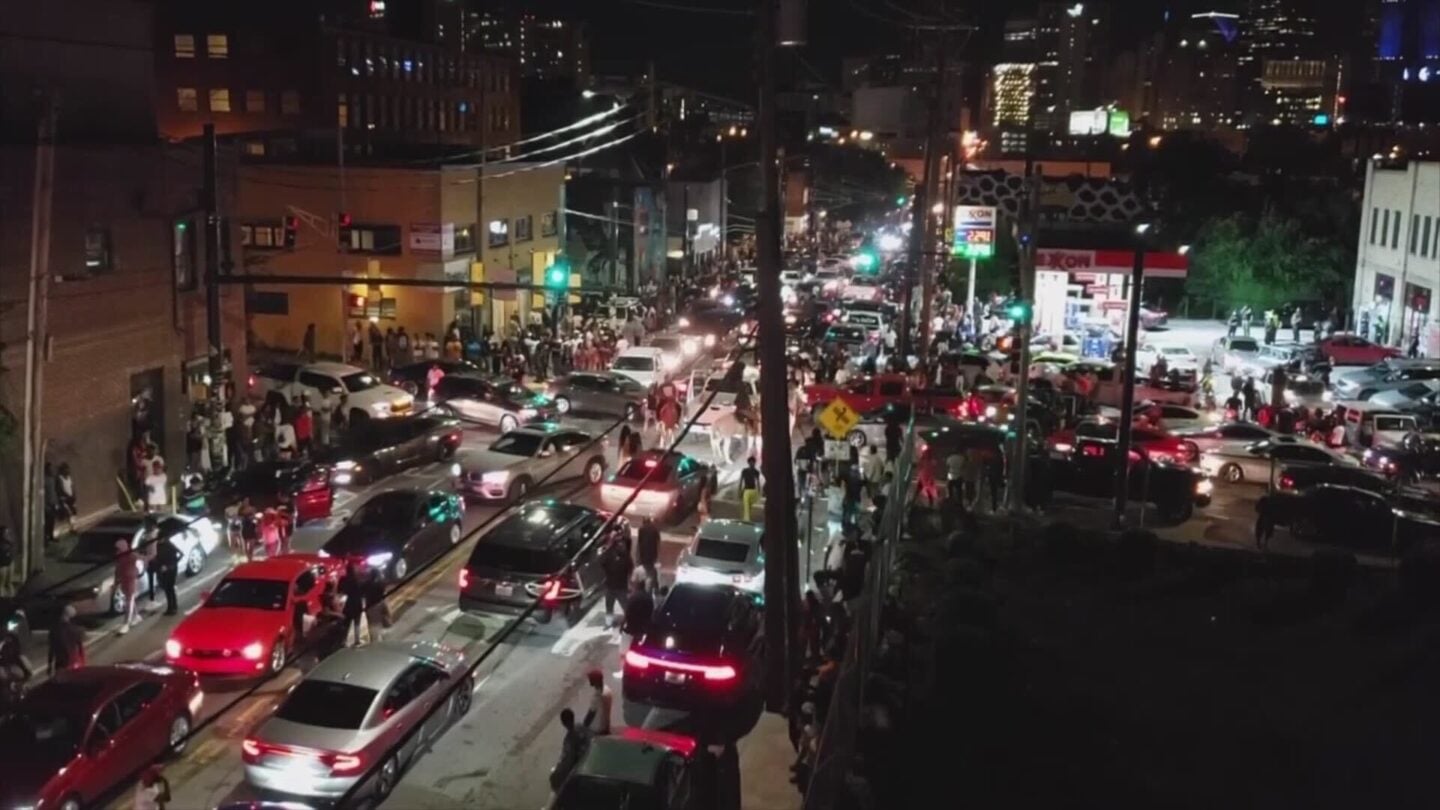
A Culture Shift
The unofficial boundary line of Edgewood Avenue is the street Boulevard. Martinez calls it a river that few people like to cross. The two sides have been nicknamed “upper Edgewood” and “lower Edgewood” by business owners on the “upper” end, or the east side of Boulevard.
What they call “lower Edgewood” is the home of the vibrant nightlife scene that Edgewood is known for. There’s a vibe shift on the other side of Boulevard — a shift beyond the suddenly industrial aesthetic. Construction of new apartments and mixed-use buildings have a dominating presence and forebodes an influx of new residents that can afford to live near the Beltline. Incoming new residents will be in walking distance from a brewery, a coffee shop, a distillery, a tanning salon, an apothecary, yoga studios and a few businesses that are relics of the Edgewood that was there before them.
“What you’re seeing more and more are developers who have decided that they want Edgewood to go in a particular direction,” Martinez says. “And so they build these places with these high rents that they think they’re gonna get someone super fancy to come into. And that’s just not going to work long term.”
Investors and developers, often disconnected from the street, are flipping buildings that were once part of Edgewood’s nightlife scene and turning them into spaces that serve a different clientele and demand a higher rent.
To compete with rising costs around them, other landlords are following suit and raising rent. Sometimes the price hikes are beyond what businesses can afford. Typically, the victims of gentrification on Edgewood are the bars and lounges that serve a Black clientele — those who are already competing with an attractive street party culture that can be experienced for free.
An emerging business class of Atlanta celebrities is venturing into the nightlife business and putting increased pressure on small businesses, too. Rappers and other entertainers are opening restaurants, lounges and clubs, and paying way too much to do so, Martinez says.
“You know, it doesn’t matter if 2Chainz makes a profit at Esco Seafood,” he says. “Because that’s probably not why he has it. He probably has it so that he can show up every now and then and be in his spot with his friends and do what everyone likes to do.”
“And what happens is that other landlords then see these spaces and they think ‘Wow, look at what they’re paying over there per square foot for Esco Seafood. I’m gonna hold out for that.’”
Thus, rent keeps rising for businesses in its orbit.
“I don’t know if my landlords are gonna come back and significantly increase my rent to a point where it no longer makes sense for me to be there financially,” Martinez says. “So that’s the downside to this sort of weird commercial gentrification that’s happening right now.”
Gentrification in Atlanta
The social well-being of a particular group is tied to the success of its nightlife ecosystem, according to Dr. Tim Thomas, the research director for the Urban Displacement Project.
Right now, Atlanta’s nightlife industry is experiencing a cultural shift — most apparent in the prevalence of breweries, which are much different than legacy businesses in the city. Their higher transactional entry point makes them exclusive. And for nightlife spots embraced by Black communities, it’s harder for them to compete with the high price points at breweries. These things are indicative of advanced gentrification, Thomas says.
The genesis for the gentrification happening today was the 1996 Olympics. Because of it, the city quickly accelerated through what he identifies as the four stages of gentrification.
Stages 1 and 2 are considered pre-gentrification which involves new, white residents moving to the city, causing a culture shift that’s in conflict with the legacy population. In Stage 3, displacement of legacy residents — in Atlanta, Black residents — occurs and there’s a shift in the clientele that’s being served in a neighborhood. In Stage 4, there’s complete transformation happening and the city government is invested in it.
Thomas, who grew up in Atlanta, says the city is experiencing the third and fourth stages of gentrification right now. New white residents, with the help of private investors, are displacing Black residents and Black businesses. And the city is funding this transformation with projects like the Beltline.
“No one wants to talk about it, but there’s a huge racial overtone that gentrification plays a role in and that’s particularly because of how it plays in the United States in general,” he says.
Gentrification has produced sharp income inequality and racial segregation in Atlanta, a city that he says already has a legacy of extreme racial inequality.
Even in the commercial sphere, he says there’s a long-standing history of isolation and segregation. That leads to a cultural disconnect between white and Black people regarding how nightlife and other third spaces should operate.
Thomas says that the discriminatory nature of gentrification results in white residents associating Black people and Black businesses with crime. It’s a reputation that Atlanta’s nightlife industry is struggling to overcome.
But gentrification is not erasing crime, only moving it somewhere else. He says it only exacerbates the social determinants of crime.
Atlanta City Council has proposed an ordinance that cracks down on nuisance properties, but in his research, Thomas found that city-initiated crackdowns on crime in certain spaces have a big gentrifying effect.
“The social determinants of crime are highly linked to poverty, highly related to segregation, and Atlanta is not innocent whatsoever,” Thomas says. “In fact, they’re the poster child of what not to do in certain cases.”
The Role of NPU’s
King Williams, a local journalist and documentary filmmaker, says that city leadership has historically accommodated gentrifying residents.
“The ethos of Atlanta for the last 50 years, their leadership, especially the Black [leaders], is make something that white people feel safe to come to,” Williams says. “And now that’s kind of transitioned to let’s make something that gentrifying white people feel safe to come to, even though they don’t come to the Black things anyway.”
The influx of new gentrifying residents to the city has coincided with a rise in participation in Neighborhood Planning Units, which are city-organized groups that meet to discuss concerns and give input on the changes to their neighborhood. Through NPUs, residents have a say in what happens in their neighborhood — and a direct line to their city councilmember.
Through NPUs, residents can make complaints about nearby businesses, and sometimes that’s the first domino to fall for nightlife spots that get shut down. In his experience with NPUs, Williams says residents’ concerns are “a bit racialized.”
“When you see the number of white kids that used to be [at Crescent Avenue] in like in 2012 or 2014 on Saturday night, just all like drunk and throwing up and stuff like that, there is still more tolerance of it, until you started to get more hip hop, and the music’s a little louder … and it’s still kind of playing out now,” he says.
Any business owner applying for a liquor license must get approved by the NPU that the property is zoned to. The NPU may or may not recommend the business to the liquor license review board. It’s a process that every restaurant, bar, lounge and club has gone through.
“So then, if I’m trying to get a nightlife venue in Atlanta, which is something that we just haven’t had a dearth of, the expectation of what that means, especially when we’re talking like nightlife in Atlanta, they’re expecting loud music. They’re expecting crowds of people. They’re expecting potential shootings, and they’re expecting their neighborhoods to be unsafe,” he says.
Essentially, making it harder for Black businesses to open in the city.
Community Support
Our Bar ATL opened up on Edgewood at the end of February 2020. It was open for about two weeks before pandemic shutdowns happened. The owner, Sarah Kim, noticed how business closures disturbed the ecosystem of Edgewood, specifically for the unsheltered neighbors nearby.
She sprung into action and Our Bar was immediately involved in community service. They were able to feed unsheltered people and do different types of outreach, and in turn, received donations and support from the community.
The biggest impact comes from the “Hug the Block” charity event, led by Our Bar’s kitchen manager Dez Luecke in partnership with the nonprofit Misfit Love Mafia. Last year, they helped over 300 people by providing hot showers, food, drinks and wardrobe racks with free clothes — all with some music and dancing.
“We were able to do something and just take care of our neighbors and then it only brought us closer to the community,” she says.
To make ends meet during the shutdown, Our Bar pivoted to a pop-up model that featured different chefs who would sell their food through Our Bar, splitting the sales. Kim featured hundreds of local chefs with the pop-ups, and it’s something she wants to continue.
“That’s a model that we’ll continue to always do,” she says. “Every summer we’re gonna do pop-ups and give our local chefs [and] rising chefs a chance to kind of flaunt their menus, right? But that kind of came from that camaraderie and community support.”
Since its beginning, Our Bar has been rooted in the Edgewood community. For those new, gentrifying businesses popping up across Boulevard, and all over the city, she says their disconnect with the community will keep them from being successful and having longevity.
“We’re not Vegas. You can’t just come up and open up this large extravagant thing, and then expect the culture to back you.”
Atlantans have a lot of loyalty to tried and true nightlife spots, and people can sense when a bar or club doesn’t care about the community that it’s standing in.
“I think the culture will always be so very quick on pointing out what’s fake. What’s for show what’s not about the community, who doesn’t care about the neighborhood they’re setting up shop in.”
But, the reciprocal embrace between Our Bar and Edgewood does not exist in the gentrification taking place in Atlanta’s nightlife industry.
“I think Atlanta has a lot of history and culture that can survive some of that, but you really do run the risk of running out the soul of the city, when you just allow that kind of gentrification to occur,” Dr. Tim Thomas says.
